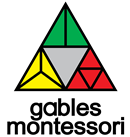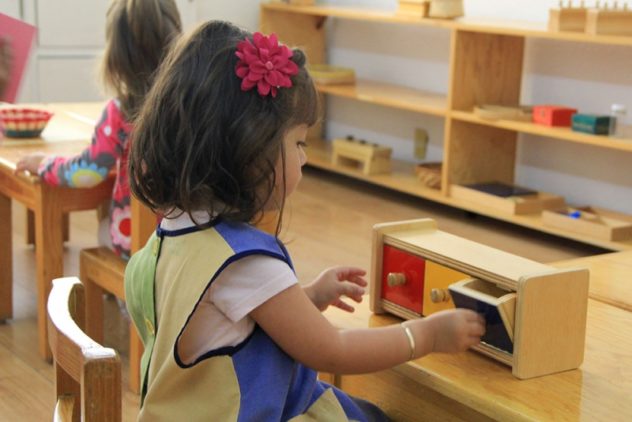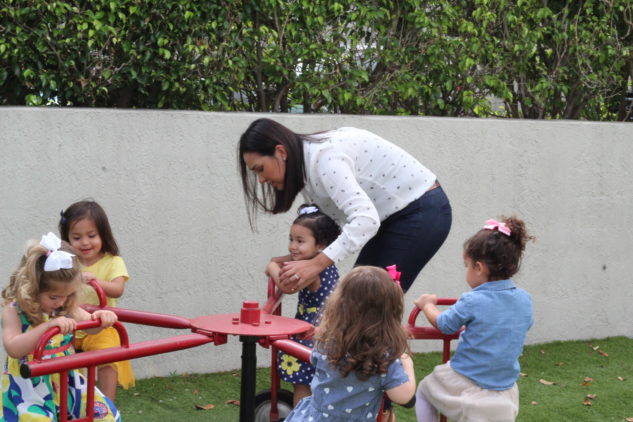First: there are methodologies, rules and limits that must be explained clearly and logically to children. The guide does not repeat them at every moment, because he assumes that each individual is responsible from the first moment the rules were discussed.
Second: throughout the day the guide remains at the bottom of the classroom observing, helping, presenting the child new materials that are interesting to him.
Third: the guide interferes in the relations between children only when it is absolutely necessary.
Fourth: each child decides if he wants to develop individual or collective work. However, sometimes the guide can suggest students work in groups to observe issues of general interest.
Fifth: according to the Montessori pedagogy, in normal schools children receive education in a frontal way. There is a teacher always stood in front of a group of members of the same age, so the advancement in knowledge is collective. In consequence, some children are left with gaps in their learning, because they feel ashamed to communicate doubts or the teacher talks so quickly without giving him time to raise its disadvantages.
The goal in the Montessori system is that every student acquire knowledge by his own methods, thus several degrees in the same classroom are managed, causing that students of different ages are together in the same classroom. The older children help the young ones and these also help the first ones to remember forgotten knowledge from previous years.
Seventh: Finally, it is important to highlight that the silence and mobility are important elements within this educational model. Children can move their tables, group them or separate them according to the exploration activity they are developing.








